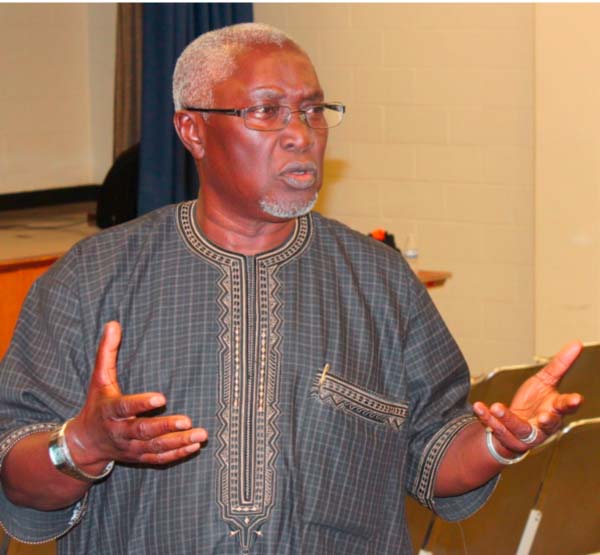
The
minister of Agriculture has said The Gambia needs to be more innovative and
open up to private investors. He made his comments yesterday during the
International Agriculture Forum. He said that creating an atmosphere conducive
for business means looking at specific tax laws for agriculture and special
investment certificates offered by GIEPA, under the Ministry of Trade.
He
added that financial institutions and investors need to be comfortable
investing in the sector, which he said means understanding the fundamentals of
agricultural production and how that can impact the kinds of decisions made.
He
continued saying, that they also need these financial institutions to develop
targeted products for particular sectors and that farmers, and actors in the
agricultural value-chain, also need to understand and appreciate the way
financial institutions operate and where their responsibilities lie.
“There
are a lot of misconceptions surrounding agriculture; that it is risky and that
farmers aren’t credit-worthy,” he said.
Minister
Jallow emphasised that financial institutions, as well as farmer/producer
organizations and other agricultural organizations are in the best position to
identify the financial needs of farmers and other agricultural stakeholders in
a climate-smart, agriculture, value-chain system targeted at improving the
sector.
He
underscored the importance of agriculture to the socio-economic health of The
Gambia and said that it should follow that the government needs to invest
heavily in the sector.
He
encouraged the private sector, especially the financial sector, to recognize
the importance of agricultural financing. Hon. Jallow applauded the government
for its long term investment strategy in the sector, without the expectation of
return on the investment in the short term.
He
went on to note that agricultural growth and performance has been fluctuating
over the decades partly due to the predominance of subsistence, rain-fed
agriculture for food crop production like millet, maize and rice,
semi-intensive cash crop production like groundnuts, cotton and horticulture
and traditional livestock rearing with little diversification and value
addition.
He
added that the GNAIP considers the need to transform the agriculture and
national resource sectors from subsistence to a more commercial orientation
focusing on the smallholders as the main pathway to sustainable development, as
a national priority.
“This
should have been achieved by capitalizing and accelerating growth in
potentially fast growing subsectors such as horticulture and coarse grains and
by increasing rice productivity for enhanced food security, income generation
and import substitution,” he emphasised.
Read Other Articles In Article (Archive)
Bissau agent testifies in treason trial
Apr 7, 2010, 1:48 PM
Deputy Agric Minister launches FSCA
Jul 6, 2010, 1:31 PM


